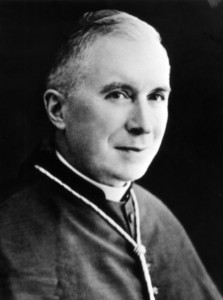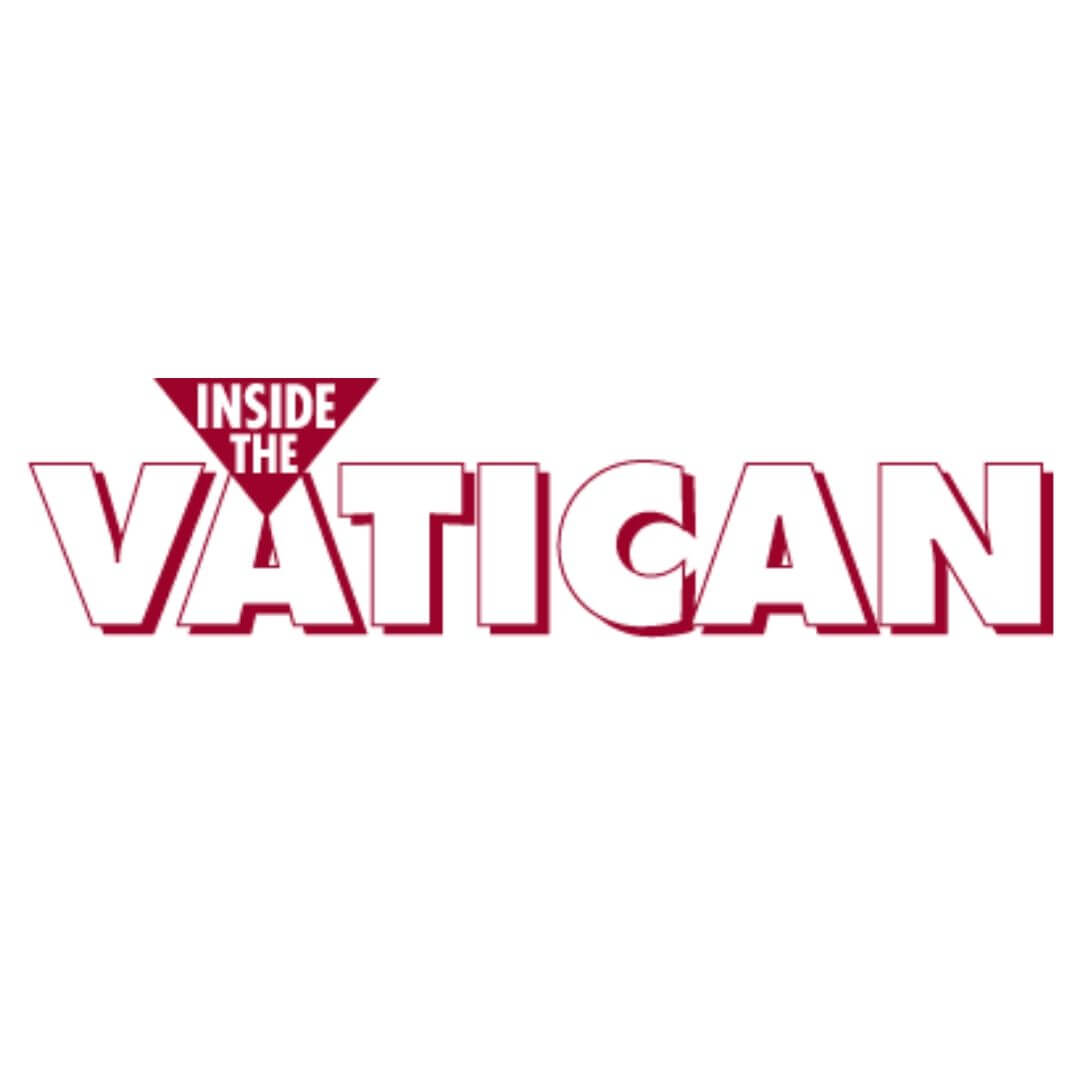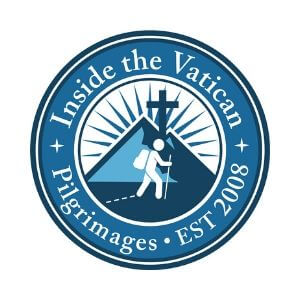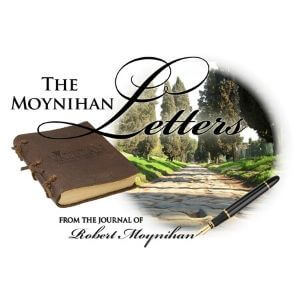“This mystical ascension is a very real event.” —A reflection on the meaning of the divine liturgy in the eastern (Byzantine) tradition on the website of Fr. Vasil Bunik of Presentation Of Our Lord Ukrainian Catholic Church in Lansdale, Pennsylvania, USA (link)
Letter #149, 2021, Thursday, November 18: Lefebvre (Letters on the Liturgy #1)
A number of inter-related questions of Catholic faith and life have emerged with new insistence in the months since the July 16, 2021, issuance by Pope Francis of Traditionis custodes (“Of the tradition the guardians”), a decree which seems to have the intent of preparing the complete suppression of the old Latin Mass, though 14 years earlier Pope Benedict XVI had attempted to give the old Mass a secure, honored place in the liturgical life of the Church in his motu proprio Summorum Pontificum of July 7, 2007.
These questions concern the Church’s liturgy — what the liturgy is, why it is important — and they concern the Christian faith — how the faith is kept in its fullness, and how it becomes fruitful in souls unto salvation, that is, unto eternal life.
These questions have been debated intensely ever since the 1960s, especially since the promulgation in 1969 of the “Novus Ordo” of the Mass by Pope Paul VI (Pope from 1963 to 1978).
Still, despite more than 50 years of debate, there remains considerable confusion in the Church on these matters. I feel the confusion myself, not least because the words written by Pope Benedict and by Pope Francis about the old liturgy seem — seem — to contradict one another.
Hence, I want to understand that apparent contradiction and then, if possible, find a way to overcome it.
So this means I am now planning, out of my own personal desire to try to study my way to the resolution of an apparent contradiction, to go more deeply into these questions.
As I do so, I ask the indulgence of those for whom the questions seem irrelevant, or unimportant.
I understand some may find these matters irrelevant, or unimportant. Still, I find them quite relevant, quite important, and indeed, central, as they involve our faith, and our understanding of Christ, and our relationship to Christ, so I do intend, if I have the time and sufficient good health, to take up these questions, in these letters, in coming weeks — as I have promised to do a couple of times in recent years (and then failed to carry out my promise — first when I spoke of reading through Joseph Ratzinger’s The Spirit of the Liturgy in the copy of that book that my late father had owned, and read, and annotated; then when I spoke in a similar way, more recently, of reading carefully through Annibale Bugnini‘s The Reform of the Liturgy, 1948-1975, again in a copy that my late father had owned and annotated). So this is still my intent. We will see if I can manage to make a small contribution to deeper, clearer, understanding, and hence, deeper spiritual communion with Christ.
I will try to give these letters a certain continuity, and a special title: “Letters on the Liturgy,” of which this will be the first.
***
I just came across some lines from the website of a Ukrainian Greek Catholic website which confirmed me in this purpose. The author writes:
“The ‘theology’ of the Divine Liturgy is one of spiritual ascent.
“Many have described the atmosphere at a Liturgy as ‘Heaven on earth’; however, this is not quite correct. Heaven came down to earth when the Son of God became man. Now, because of Christ’s Resurrection and Ascension into Heaven, the Kingdom of God does not come down to earth; instead, earth has the potential of being raised up to Heaven.
“For the person who is willing to open his heart and soul to the spiritual dynamics of the Divine Liturgy, this mystical ascension is a very real event. Like the steps of a stairway, or rungs of a ladder, every litany, every hymn, every prayer and Scripture passage of the service takes us one step closer to the Heavenly Kingdom.
“We begin our spiritual ascent by singing the earthly hymns found in the Old Testament Psalms, and soon we join the choirs of Angels and Saints in their heavenly ‘Thrice Holy Hymn’ of praise to the Lord. Eventually, we will ask that God, our Lord and Creator, accept us as His children and allow us to call upon Him as ‘Our Father.’
“We then conclude our spiritual journey to God’s Holy Domain in the Liturgy by approaching Christ Himself, the King of Kings, and partaking of His Precious Body and Blood. In this way, we unite ourselves with Him, and become heirs to His Kingdom.”
So, the liturgy is a journey.
It is a “spiritual ascent.”
It is a “real event” which takes us “closer to the Heavenly Kingdom,” that is, closer to Christ.
If the liturgy becomes anything less, if it becomes something rote, something cold, something distant and uninspiring, something is very wrong.
***
About three months ago, Dr. John Pepino, Ph.D., on August 5 on the website OnePeterFive published the texts of two very interesting letters, both written in 1966, just after the end of the Second Vatican Council. (link)
One was written by Italian Cardinal Alfredo Ottaviani (1890-1979, so he died at the age of 88) who was the head of the Holy Office in Rome and, as such, the chief doctrinal officer in the Church.
The other was written in response to Ottaviani’s letter by French Archbishop Marcel Lefebvre (1905-1991, so he died at the age of 85), who had just spent four years at the Second Vatican Council, and had very clear memories of what had happened in those sessions in the autumns of 1962, 1963, 1964, and 1965.
So I begin this journey of discovery, this effort to understand more profoundly the Church’s liturgy, and the reform of that liturgy which followed the Council, by reading these two letters, with sincere thanks to Dr. Pepino and to OnePeterFive…

Above, French Archbishop Marcel Lefebvre (link)
Just After the Council, Lefebvre Responds to Ottaviani (link)
August 5, 2021
The Council had been over for less than a year. Catholics were excited and confused. Different moves towards implementation, sometimes contradictory, were rumored. Already Catholic liberals were hard at work to lead the Church in their direction. What was Rome to do?
After fifty-five years, we know what Cardinal Ottaviani, one of Cardinal Ratzinger’s predecessors as Prefect of the Congregation for the Doctrine of the Faith, decided to do: on July 24, 1966, he wrote to the Ordinaries of the world to sound the alarm.
He had been receiving daily indications of a revolt against sound doctrine; some were already falsely appealing to the Council to spread their errors. These errors had to be dealt with.
Cardinal Ottaviani, best known in liturgically-minded circles for his intervention regarding the Mass of Paul VI in 1969, begins his letter by praising the Council’s wise documents in doctrine and discipline.
He soon points out, however, that his office has been receiving worrisome indications of drifts in the Council’s interpretation.
He lists these drifts—“theses [that] go beyond simple opinion” and “affect dogma”—and reduces them to ten specific points. He thus produces a sort of post-conciliar syllabus of errors.
His list is prophetic.
It outlines attacks on Biblical inerrancy, the Magisterium, objective truth, Christology, the True Presence, and other essentials of the Faith.
It was against the consequences of these errors, which he foresaw back in 1966, that he asked the bishops and superiors general of the world to “take care to repress [these errors] or to prevent them.”
Perhaps the most famous response to this letter, sent just five days before its deadline of Christmas 1966, is that from Archbishop Marcel Lefebvre, Superior General of the Holy Ghost Fathers and of course the future founder of the Society of St. Pius X.
At this point, the archbishop was imputing the reigning confusion not so much to erroneous interpretations of the Council as to the Council itself. In his response we find the early expression of some of his better known theses: that the Council marked an accommodation of the Church to the ideas leading to the French revolution; that the Council marked a break in the continuity of Tradition; that the new notion of Episcopal collegiality had broken the unity of the Church centered upon the Supreme Pontiff, etc.
We also find an expression of filial hope in the Pope: “And yet, the Successor of Peter and he alone can save the Church.”
The archbishop follows this with some advice on how the Pope should proceed—most smarting is the reproach that “Wednesday allocutions cannot take the place of encyclicals, of commands, of letters to bishops.”
This answer, therefore, forms an important document for the study of the development of Archbishop Lefebvre’s thought. For what I believe is the first time, his response is translated into English below.
The original French of these two letters is in Lettre à nos frères prêtres 29/30 (June 2006): 8-11. The following translations are my own [i.e., by Dr. Pepino]. For the sake of readability, Cardinal Ottaviani’s letter is in first, followed by Archbishop Lefebvre’s letter.
***

Cardinal Ottaviani
SECRET LETTER OF CARDINAL OTTAVIANI:
Sacred Congregation
For the Doctrine of the Faith
Prot. No 871/66
Rome, 24 July 1966
Piazza del S. Uffizio, 11
Since the Second Vatican Ecumenical Council, which was recently and successfully brought to a close, promulgated most wise documents in both doctrinal and disciplinary matters for the efficient promotion of the life of the Church, the entire people of God has the grave duty of making every effort to implement all that has been solemnly proposed or decreed in that great assembly of bishops under the presidency of the Supreme Pontiff.
Now it is up to the hierarchy—it is its right and its duty—to supervise, to direct, and to promote the movement of renewal undertaken by the Council, so that this Council’s documents and decrees may receive a correct interpretation and be implemented in keeping with the meaning and the spirit of the documents themselves. For indeed it is the bishops who must protect this doctrine, since they enjoy—under their head, Peter—the office of teaching authoritatively.
It is thus praiseworthy that many Pastors have already begun to explain the Council in a fitting manner.
Nevertheless it is regrettable that from diverse quarters there is sad news of increasing abuses in the interpretation of the Council’s doctrine, as well as errant and bold opinions arising here and there that in no small measure distort the minds of many of the faithful.
Though studies and efforts for a deeper investigation of the truth, rightly distinguishing between what must be believed and what is a matter of free opinion, are worthy of praise, nevertheless, upon examination of the documents submitted to this Sacred Congregation, it is clear that no inconsiderable number of theses effortlessly go beyond simple opinion or hypothesis and to a certain degree seem to affect dogma itself as well as the foundations of the faith.
It is appropriate to touch upon some of these theses by way of example as they are manifested either from the accounts of learned men or in their public writings.
- In the first place, sacred Revelation itself: some men have recourse to Sacred Scripture by knowingly putting aside Tradition; they also reduce the extent and force of biblical inspiration and inerrancy and do not have a correct idea of the worth of historical texts.
- As far as concerns the doctrine of the Faith, it is said that dogmatic formulas are subject to historical evolution in such a way that their objective meaning itself is subject to change.
- The ordinary Magisterium of the Church, especially that of the Roman Pontiff, is sometimes so neglected and undervalued that it is relegated to the area of free opinion.
- Objective and absolute truth, firm and immovable, comes close to not being admitted by certain men who subject all things to a sort of relativism. This for the faulty reason that all truth necessarily follows the rhythm of the evolution of conscience and history.
- The adorable Person of Jesus Christ Himself is hit when, in dealing with Christology, such concepts of person and nature are used as are hardly compatible with dogmatic definitions. A sort of Christological humanism creeps about according to which Christ is reduced to the condition of a mere man who, allegedly, became conscious of His divine Sonship gradually. His miraculous conception, his miracles, even his Resurrection are granted verbally but in reality are reduced to the purely natural order.
- Likewise in the theological tract on the sacraments certain elements are ignored or insufficiently taken into account, especially as concerns the Most Holy Eucharist. There is no dearth of those who discuss the true presence of Christ under the species of bread and wine by favoring an excessive symbolism, as if the bread and wine were not converted into the Body and Blood of Our Lord Jesus Christ through transubstantiation, but were simply transferred towards a certain signification. There also are those who push further than is reasonable the concept of agape for the Mass, giving it priority over the idea of Sacrifice.
- Some, preferring to explain the sacrament of Penance as a means of reconciliation with the Church, do not sufficiently express reconciliation with God who is Himself offended. They claim that personal confession of sins is not necessary to the celebration of this sacrament; rather they are content to express only the social function of reconciliation with the Church.
- There are many too who underrate the doctrine of the Council of Trent on original sin, or who comment on it in such a way that the original sin of Adam and its very transmission are obfuscated.
- No less important errors are spread in the realm of moral theology. Indeed some, in no small number, dare to reject the objective rule of morality; others do not accept natural law and affirm the legitimacy of situation ethics, as they call it. Pernicious opinions are proposed on morality and responsibility in sexual and matrimonial matters.
- To all of this one must add a note on ecumenism. The Apostolic See fully praises those who, in the spirit of the conciliar decree on ecumenism, promote initiatives with a view to favor charity towards separated brethren and to attract them to the unity of the Church, but it deplores the fact that there is no lack of those who, interpreting after their own fashion the conciliar decree, make claims to such ecumenical action as offends the truth of the unity of the Faith and of the Church, favoring a dangerous irenicism and indifferentism, which is assuredly foreign to the spirit of the Council.
These sort of errors and perils are widely distributed, but are nevertheless brought together in this letter in a summary synthesis and submitted to the Ordinaries, so that each of them, in keeping with his charge and office, may take care to repress them or to prevent them.
Moreover, this Sacred Dicastery earnestly entreats these same Ordinaries of regions, assembled in their respective Episcopal conferences, to take care of them, to refer them opportunely to the Holy See and to share their reflections before the Feast of the Nativity of Our Lord of the current year.
May the Ordinaries and those—whoever they are—to whom they have deemed it just to communicate this letter, which an obvious reason of prudence forbids to render public, cover it in utmost secrecy.
Card. OTTAVIANI
Prefect
ARCHBISHOP LEFEBVRE’S ANSWER TO THE SECRET LETTER OF CARDINAL OTTAVIANI:
Rome, 20 December 1966
Most Reverend Eminence,
Your letter of July 24 concerning the questioning of certain truths has been forwarded to all our major superiors.
Few answers have reached us. Those that reached us from Africa do not deny that a great mental confusion reigns today. Though these truths appear not to be questioned, nevertheless in practice there is a diminishment of fervor and of regularity in the reception of the sacraments, especially penance.
There is a much diminished respect for the Holy Eucharist, especially among priests; a dwindling of priestly vocations in French-language missions; English- and Portuguese-language missions are less hit by the new spirit, but periodicals and journals are already spreading the most advanced theories there too.
It seems that the cause of the slight number of responses received stems from the difficulty in grasping these errors, which are diffused everywhere; the trouble is to be found especially in a literature that spreads mental confusion through ambiguous and equivocal descriptions in which one discovers a new religion.
I think it my duty to expose to you very clearly what emerges from my conversations with many bishops, priests and laymen of Europe and Africa, and which emerges also from my reading in English- and French-language countries.
I should gladly follow the order of truth outlined in your letter, but I dare say that the present trouble seems to me far graver than the denial or questioning of a truth of our Faith.
It manifests itself today in an extreme confusion of ideas, by the collapse of the Church and religious institutions, seminaries, Catholic schools, in a word of all that has been the abiding support of the Church. It is none other than the logical continuation of the heresies and errors that have been sapping the Church these last few centuries, especially since the last century’s liberalism, which has made every effort to reconcile the Church to the ideas that led to the Revolution.
To the extent that the Church has opposed these ideas that are against healthy philosophy and theology, she has progressed; contrariwise, any compromise with these subversive ideas has brought about an accommodation of the Church in common law and the risk of enslaving her to civil society. Moreover every time Catholic groups have allowed themselves to be drawn to these myths, Popes have bravely brought them back into line, enlightening them and if necessary condemning them.
Catholic liberalism was condemned by Pius IX; modernism by Leo XIII, “Le sillon” by Saint Pius X; communism by Pius XI; neo-modernism by Pius XII. Thanks to this admirable vigilance, the Church grew stronger and developed. Conversions of pagans and Protestants were very numerous; heresy was completely routed and civil governments accepted a more Catholic legislation.
On the other hand groups of religious, imbued with these false notions, managed to spread within “l’Action catholique” and in seminaries, thanks to a certain indulgence on the part of bishops and the tolerance of certain Roman dicasteries. Soon bishops were chosen from among these priests.
This is the point at which the Council occurred. It had been readying itself, through its preparatory Commissions, to proclaim the truth before these errors in order to make them disappear for a long time from the Church’s midst. It might have been the end of Protestantism and the beginning of a fruitful era for the Church.
I should gladly follow the order of truth outlined in your letter, but I dare say that the present trouble seems to me far graver than the denial or questioning of a truth of our Faith.
It manifests itself today in an extreme confusion of ideas, by the collapse of the Church and religious institutions, seminaries, Catholic schools, in a word of all that has been the abiding support of the Church. It is none other than the logical continuation of the heresies and errors that have been sapping the Church these last few centuries, especially since the last century’s liberalism, which has made every effort to reconcile the Church to the ideas that led to the Revolution.
To the extent that the Church has opposed these ideas that are against healthy philosophy and theology, she has progressed; contrariwise, any compromise with these subversive ideas has brought about an accommodation of the Church in common law and the risk of enslaving her to civil society. Moreover every time Catholic groups have allowed themselves to be drawn to these myths, Popes have bravely brought them back into line, enlightening them and if necessary condemning them.
Catholic liberalism was condemned by Pius IX; modernism by Leo XIII, “Le sillon” by Saint Pius X; communism by Pius XI; neo-modernism by Pius XII. Thanks to this admirable vigilance, the Church grew stronger and developed. Conversions of pagans and Protestants were very numerous; heresy was completely routed and civil governments accepted a more Catholic legislation.
On the other hand groups of religious, imbued with these false notions, managed to spread within “l’Action catholique” and in seminaries, thanks to a certain indulgence on the part of bishops and the tolerance of certain Roman dicasteries. Soon bishops were chosen from among these priests.
This is the point at which the Council occurred. It had been readying itself, through its preparatory Commissions, to proclaim the truth before these errors in order to make them disappear for a long time from the Church’s midst. It might have been the end of Protestantism and the beginning of a fruitful era for the Church.
-Doubts regarding the necessity of the Church and of the sacraments beget the disappearance of priestly vocations.
-Doubts regarding the necessity and nature of “conversion” of the soul beget the disappearance of religious vocations, the ruin of traditional spirituality in novitiates, the uselessness of missions.
-Doubts regarding the legitimacy of authority and the necessity of obedience, brought about by the exaltation of human dignity, of the autonomy of conscience, and of freedom, shake up all societies, starting with the Church, religious societies, diocese, civil society, the family. Pride has, as a normal consequence, every concupiscence of the eyes and of the flesh. One of the most appalling things to note is, perhaps, the moral degeneracy to which most Catholic publications have fallen. There is no reserve in talking about sexuality, the limitation of births by any and all means, the legitimacy of divorce, coeducation, flirting and dances as means of Christian education, about priestly celibacy, etc.
-Doubts regarding the necessity of grace for salvation bring about disregard for baptism, which is now postponed, and the abandonment of the sacrament of penance. All of this is principally the attitude of priests, not of the faithful. The same applies to the Real Presence: it is the priests who behave as if they no longer believe, hiding the Holy Reservation, suppressing all marks of respect toward the Blessed Sacrament and all ceremonies in Its honor.
-Doubts regarding the necessity of the Church as only source of salvation and regarding the Catholic Church as one true religion, derived from declarations on ecumenism and on religion freedom, destroy the authority of the Church’s Magisterium. Indeed, Rome is no longer the sole and necessary “Magistra Veritatis” [“Teacher of truth”].
Overcome by the facts, therefore, we must conclude that the Council has fostered the spreading of liberal ideas in an inconceivable way. Faith, morals, ecclesiastical discipline: these are shaken to their foundations, in keeping with the predictions of all the popes.
The Church’s destruction is proceeding apace. Through an exaggerated authority granted to Episcopal conferences, the Sovereign Pontiff has rendered himself impotent. In a single year, how many painful examples! And yet, the Successor of Peter and he alone can save the Church.
Let the Holy Father surround himself with vigorous defenders of the Faith, let him appoint them to significant dioceses. Let him deign to proclaim the truth in weighty documents, let him hunt down error without fear of opposition, without fear of schism, without fear of casting doubt upon the pastoral dispositions of the Council.
May the Holy Father deign to encourage the bishops to set faith and morals aright individually, as befits any good shepherd; to support courageous bishops, to incite them to reform their seminaries, to reestablish studies according to St. Thomas in them; to encourage superiors general to maintain in their novitiates and communities the fundamental principles of all Christian asceticism, especially obedience; to encourage the development of Catholic schools, of a doctrinally healthy press, of associations of Christian families; at last also to repress those who instigate error and to reduce them to silence. Wednesday allocutions cannot take the place of encyclicals, of commands, of letters to bishops.
Doubtless I am rather bold to express myself in this manner! But it is with ardent love that I write these lines, love of the glory of God, love of Jesus, love of Mary, of her Church, of the Successor of Peter, bishop of Rome, vicar of Jesus Christ.
May the Holy Ghost, to Whom our congregation is dedicated, deign to come to the assistance of the Shepherd of the Church universal.
May it please your Eminence to accept the assurance of my very respectful devotion in Our Lord.
+ Marcel Lefebvre
Titular Archbishop of Synnada in Phrygia
Superior General of the Congregation of the Holy Ghost.
[Here continues the analysis of Dr. Pepino.]
These two letters reveal a few items of importance for the history of the post-conciliar era.
On the one hand, we see that Rome did not remain inactive in the face of the whirlwind.
She responded appropriately: the Prefect of the CDF fulfilled his function by informing all ordinaries of the problem; he asked them to nip error in the bud and to report to him on the local situation within five months.
Clearly, he felt this to be a matter of urgency.
Only further research will reveal what responses he received from the majority of ordinaries at the time.
Archbishop’s Lefebvre’s response in this regard is not encouraging: even he seems to have had trouble getting answers from his inferiors.
The response of the Archbishop is revealing in another way too.
He already finds the cause of the situation in the documents of Vatican II themselves and links them to eighteenth-century revolutionary ideas.
In this he is expressing his disagreement with Card. Ottaviani, who had made of point of extolling the wisdom of these documents “in both doctrinal and disciplinary matters.”
Ottaviani’s view must have been that Rome could not take the path of revising the texts, as Lefebvre was advocating.
This exchange of letters, therefore, represents the fork in the road between the Vatican and Lefebvre.
The consequences, fifty-five years later, are to be found in the ongoing dialogue between Rome and the Society of St. Pius X.
[End, analysis of Dr. Pepino; to be continued]
Note: If you would like to support this email letter, please click here. If you would like to order the book Finding Viganò, click here. If you would like to send a comment or question to me, simply reply to this letter by return email, and I will attempt to answer all emails.—RM
Note #2: Here below is again the link to Tape #4 of my Bishop Schneider interview, posted yesterday.
We ask you to support Urbi et Orbi Communications with a small or large contribution, at this difficult time, in order…
(1) to keep Inside the Vatican Magazine (which we have published since its founding in 1993, 27 years ago) independent and comprehensive… a unique lens into the Church and the World. Now available to you digitally as well as in print!
(2) to ensure that Inside the Vatican Pilgrimages can keep creating encounters for you with the Heart of the Churches, the homes of the Saints, and the Living Stones — the people — of whom the Church is built. Now offering you virtual pilgrimages from your home computer! (see below for more information)
(3) to help to bring the Churches closer together by “Building Bridges” to heal the schisms of the Church — East and West — through our non-profit Urbi et Orbi Communications.
(4) to sustain our occasional news and editorial emails, The Moynihan Letters, bringing the latest valuable information and insight like no other source to thousands of readers around the world.
Please, do not overlook this opportunity to work with us. We very much appreciate your gift, whether small or large.
Thank you.
In Christ,

Dr. Robert Moynihan and the rest of the Urbi et Orbi Team










Facebook Comments